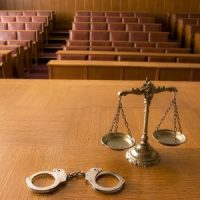Probable Cause Hearings

Police sometimes arrest people for no good reason. Unfortunately, protesting in the moment that you did not do anything wrong and the officer had no reason to arrest you does not make things better and usually makes them even worse. The good news is that you do not always have to go all the way through a criminal trial to get through the experience without a criminal record. Criminal trials are for cases where there is reason to believe that the defendant committed the crime, and there may also be reason to believe that he or she did not. When it is obvious that there is no good reason to charge you with a crime, the judge will notice. If the judge does not notice this on his or her own, you have the right to point it out by requesting a probable cause hearing, which could lead to the court dismissing the case, so that you can just go on with your life, without a criminal record and without criminal charges. Here, our Miami criminal defense lawyer explains how probable cause hearings work and how they might be the best possible outcome for your case.
The Role of Probable Cause in Criminal Cases
The court can take certain legal actions based on different standards of evidence. The more irreversible the action, the higher the standard of evidence required to complete it. For example, in a civil lawsuit, the court can award damages to the plaintiff if the plaintiff shows that there is a preponderance of the evidence that the defendant caused the plaintiff to incur the financial losses that the plaintiff is claiming. A preponderance of the evidence means that it is more likely than not that the plaintiff’s claims are true and accurate. This is a much lower standard of evidence than “beyond a reasonable doubt,” which is the standard of evidence required to convict a defendant at a criminal trial.
The standard of evidence required for a police officer to arrest someone on suspicion of a crime is probable cause. This means that the officer reasonably believes that the defendant was in the act of committing a crime, was about to commit a crime, or had just finished committing a crime. For example, an officer can arrest you at a traffic stop if illegal drugs and drug paraphernalia are in plain sight in your car, because this is probable cause to believe that you were in possession of illegal drugs. When police want the court to issue a search warrant or an arrest warrant, they must persuade the court that there is probable cause to arrest the defendant or to believe that a search will yield certain evidence related to an ongoing criminal investigation.
Why Do the Courts Hold Probable Cause Hearings?
Probable cause hearings can occur in two contexts. The first is when police have arrested you and are keeping you in custody. In order to avoid violating your right not to imprison you when you have not been convicted of a crime, the court must hold a probable cause hearing to determine whether the state has the right to charge you with a crime at all, and if so, whether there is a valid reason to keep you detained. If the judge determines at this probable cause hearing, also known as a first appearance hearing, that there is no probable cause to arrest you, then the court will dismiss your case and you will not be formally charged. If the court determines that there is probable cause, then your criminal case will proceed, and you will have a chance to enter a plea.
You can also request a probable cause hearing at any time between your initial arrest and your trial. If, in the course of preparing your defenses, you find evidence that the police did not have probable cause to arrest you, you may request a hearing to make this argument before the judge. As in the first appearance hearing, the possible outcomes are that your case will move forward or that the court will drop the charges.
How to Prove That the Police Did Not Have Probable Cause to Arrest You
You can show that the officer did not have probable cause to arrest you because you were not doing anything that would suggest that you were committing a crime, but unless you can back up your claims with witness testimony or surveillance camera footage, it is your word against the officers. Likewise, there is no probable cause if a witness on whose testimony the prosecution was basing its case recants his or her statements, or if your lawyer can cross-examine the witness and show that he or she is not credible.
Contact Our Criminal Defense Attorneys
A South Florida criminal defense lawyer can help you show that there was no probable cause for your arrest. Contact Ratzan & Faccidomo in Miami, Florida for a free, confidential consultation about your case.
Source:
law.cornell.edu/regulations/florida/Fla-Admin-Code-Ann-R-34-12.750


